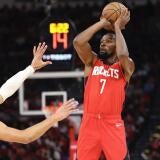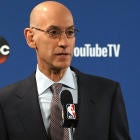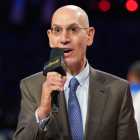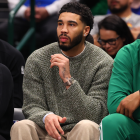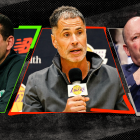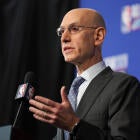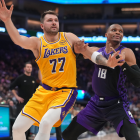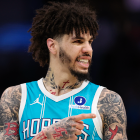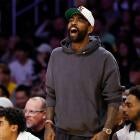NBA says teams using load management designation to sit players will be in violation of league resting policy
Teams who violate the league's rest policy can be subject to large fines
Back in 2012, San Antonio Spurs head coach Gregg Popovich caused quite the stir by sending Tim Duncan, Manu Ginobili, Tony Parker and Danny Green home ahead of the team's primetime matchup with LeBron James and the Miami Heat, which was the last game of a six-game road trip. The league acted swiftly, fining the Spurs $250,000 for what then-commissioner David Stern said was a "disservice to the league and our fans."
Seven years later, the debate about resting players is still going strong. Last season, the Toronto Raptors' load management plan for Kawhi Leonard seemed to be a tipping point. It's hard to argue with the results, as Leonard led the Raptors to their first title in franchise history, but the process still bothers many people -- including some in the league office.
As a result, the NBA has tried to clarify its rules on resting players, as well as using the term "load management." In a memo obtained by ESPN's Zach Lowe, the league indicated to teams that they are no longer allowed to say that players are sitting out due to load management. If they use that designation, they will be in violation of the league's resting policy, and subject to subsequent fines.
The short version: Load management is now rest. Period. If you see that term, it will mean a healthy player is taking the night off. If skipping that particular game violates the league's resting policy, that player's team will be penalized.
The resting policy prohibits teams from sitting healthy players in "high-profile" nationally televised games. It requires teams rest players at home absent some "unusual circumstances," the idea being that home fans get many chances to see their teams' stars. The league also has instructed teams not to rest multiple healthy players in the same game, barring those same "unusual circumstances."
To ensure that teams are not tricking them with injury designations, the league has in-depth procedures that include submitting documented proof of examinations by team medical staff, as well as treatments players have received. Furthermore, if they want to sit a healthy player for rest, they must call the league at least 48 hours in advance.
While there are pretty easy ways for teams to get around these and other guidelines, it does put a procedure in place and tries to regulate the issue. At the same time, Lowe reported that the league has been flexible with the rules, allowing exceptions in cases of players with chronic injury histories, such as Leonard and 76ers center Joel Embiid. Furthermore, not all national TV games are treated the same by the league office.
As long as the league continues to play an 82-game regular-season schedule, the topic of resting players is never going to go away. The season is too long, guys are too athletic, games are too physical and travel is too demanding. Players get worn out, and over the long run they need to take nights off to rest.
At the same time, this is a sport played for fans, and they should be taken into consideration. It's a bummer to turn on a big national TV game and see stars sitting out, or buy tickets months in advance, only to find out your favorite player is taking the night off.
These points on both sides have been made time and again, and by now the various positions on the issue have been staked out. Unless there are major changes to the schedule, the league will continue to try and thread the needle to keep everyone happy, which is an impossible task, and will always result in some lackluster games, and unhappy fans. But at least with these new guidelines, there is some further clarity surrounding load management.





